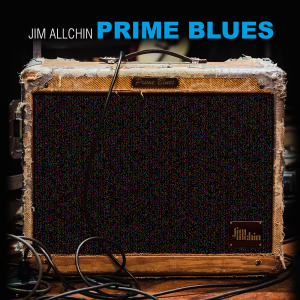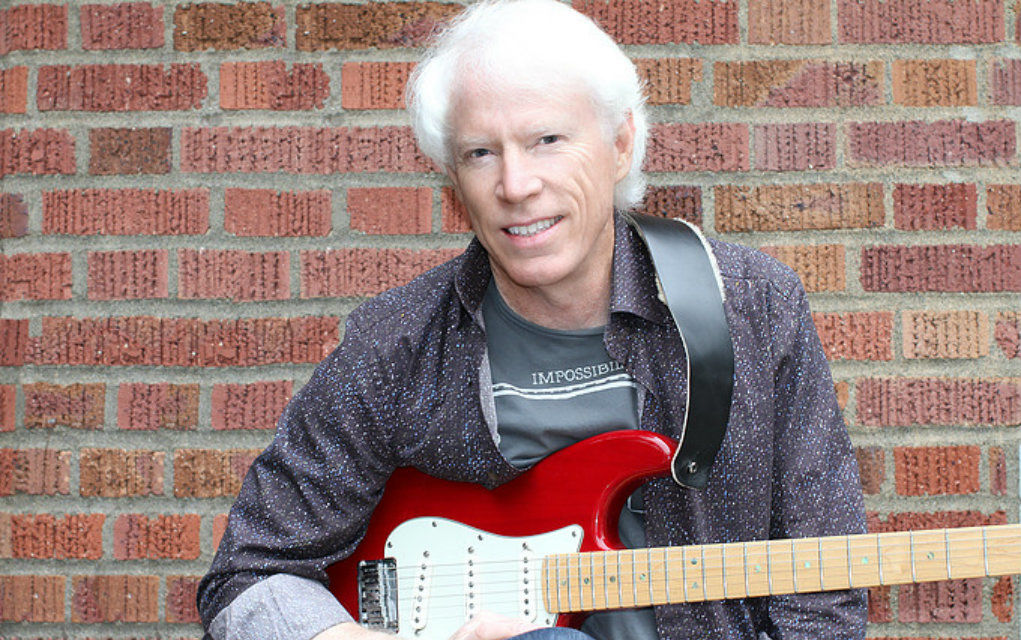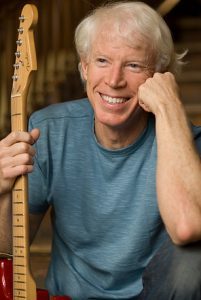
A computer scientist + blues guitarist + philanthropist = Jim Allchin. Schoolhouse Rock was right: three is still the magic number. And although prime numbers may not be as constructive a part of his current world, that doesn’t mean Jim doesn’t still apply them to everyday life. Nor does it mean he doesn’t still use problem-solving strategies to navigate him through what some may consider unlikely projects by which to do so. One pursuit that has always beckoned to him, long before his indispensable executive role at Microsoft, is playing the blues.
Prime Blues, his fourth widely distributed album, was released on September 21st and has been receiving well-deserved acclaim. Grammy-winning producer/songwriter/drummer Tom Hambridge is back doing all three things on Prime Blues, as he did on last year’s Decisions, another Allchin album which has also been met with positive reception. I think many will find this latest project to be a refreshing sonic blend of clean guitar tones, melodic horn arrangements, subtle yet essential B3 organ, and a pulsating rhythm section. Jim talked to me about his world-class personnel supporting him and why he feels it’s his best work yet.
Jim also shared his perspective on organizations like The Blues Foundation and Berklee Music, which help to preserve roots music through outreach and distinct student programs. Jim believes you must maintain the vitality of an often overlooked American art form; thus, he involves himself in both institutions. Broadly, most of his time in terms of charity is not in the United States, rather with a main focus on girls’ education in Africa. “I’m a huge believer in education; in particular, women’s education. Hopefully, the next generation will do better than the current generation if they have the opportunity to get educated. So we are involved in that, as well as some environmental stuff.”
Lauren for American Blues Scene:
Rocking out is a far cry from, say, distributed processing. But perhaps not in your case. How would you juxtapose your vision for innovation and the creative energy you pour into your music?
Jim Allchin:
Well, I like problems; I like to solve problems. So, I look at everything through the eyes of solving problems. And hopefully for the good of humanity, you know, and not just a total academic thing. Music, to me, is all about emotion. There is a technical aspect to it, and that’s the problem solving that I like. It can be a great technical piece, and you may be able to do these great things with your hands or your mouth or whatever, but if you aren’t getting across emotion, then what good is it? So, it’s really a hard thing. Clearly, there’s a lot of technical aspects to producing music. I did this beta album, which wasn’t very good, but I did it all myself. And I learned so much by doing it. I started off literally knowing nothing. I’d not ever sung, recorded, composed… And it was not good. But I learned an awful lot, so that was another problem. There’s certainly a lot of problems to be solved, but music is different because you’re trying to communicate an emotion or feeling, or you’re trying to tell a story. In that regard, it’s different than what I was doing with software or what I’m still doing now, because I do like mathematics. I do like to solve problems. It’s very exciting.
In your guitar playing, I can hear the undercurrents of Hendrix blues, Allman Brothers, and maybe even Billy Gibbons. Do you identify most with such artists, or other such artists, who quite melodically provided a bridge from rock and roll to blues?
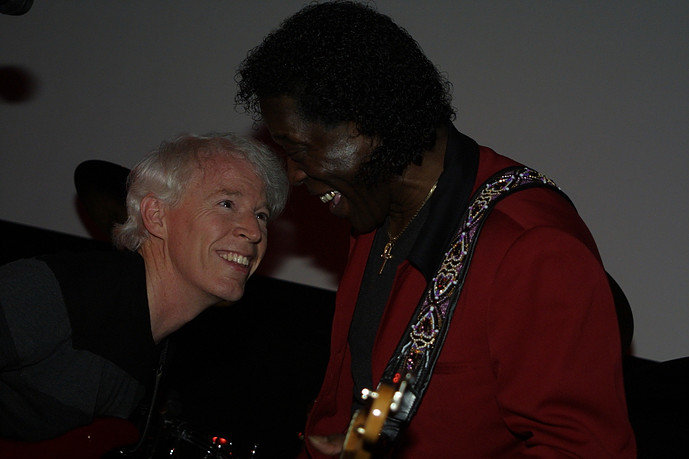
Yeah, I probably do, growing up in the South with the Allman Brothers. You know, I hold myself back in one regard, because there’s a Santana influence and Latin influence as well. In fact, I have enough songs for – I guess you would call it a flamenco fusion album of Latin music that I’ve not released, but pretty much have an album.
You play some flamenco?
Well, I’m learning.
I like that!
As with anything, I’m always trying to learn. I’m an amalgamation of a whole bunch of stuff, from the Albert King world to…
To Hendrix.
To Hendrix. Certainly Eric Johnson and…
Eric Clapton, Santana, Lynyrd Skynyrd was always around when I was in Gainesville.
I lived in Gainesville, too.
It was probably long after me. I just got a note from a guy that I used to play music with when I lived in Gainesville. He said that they just dedicated a park there to Tom Petty.
I was there! Well, at the festival part, anyway.
We were all starting around the same time there. And you know, Petty was – I slept on one sofa, he slept on another. I didn’t really know him other than he was just some random musician. So, it was quite a melting pot of different groups back then playing out in Gainesville. There was a book I saw about the musicians that came out of the Gainesville-Jacksonville area.
I think I know what book you’re talking about. I can’t remember the name of it, but I was at a library in Massachusetts when I came across it.
At any rate, I have a lot of influences. Certainly the Allman Brothers, but I can go back to a different era with The Ventures.
Yeah, who doesn’t love The Ventures? I love that sound.
The future of roots music seems uncertain at times, from not enough people supporting local music to glorifying pop stars for all the wrong reasons. Could you give me just one example in which you think we can preserve the art form for posterity?
Well, I love the Blues Foundation. Clearly, they have done so much to help preserve it. And so, I’m a huge supporter of what they’re doing and their outreach, whether it be their summer programs for young students… So, that’s really good. I love the fact that places like Berklee Music – they have programs full-time that are focused on American roots, and they have programs for students to learn and expand. I believe anything that stays stagnant ends up dying in the end, so it has to continue to evolve. One of the things that I think is important, and that I hope people who are listening to the blues will keep an open mind as it continues to expand in different dimensions and not be judgmental and say, ‘OK. This is the blues; this isn’t the blues.’ Because I think that is a huge, huge danger. Who knows how it’s going to evolve and what it might become. I think cutting it off too early is just bad. So when I do an album, it’s something to think about – about how far you stretch it in what dimensions. I’ve put a couple songs on some of my past albums that are really outside the box of the typical blues, which some people like and some people don’t. I hope that the people who are listening and are generally are open to blues will say, ‘Oh. Well, this might be an interesting dimension. It shows where he was at this period of time.’ And it’s still blues.
Yeah, exactly. And maybe music is more socially stratified in some ways than it used to be.
Yeah, I mean, what’s the difference between contemporary blues and blues rock?
Right. Not many degrees.
And in some cases, when I submit music to things, I actually have to pick the genre. And I don’t really like that.
Yeah, you feel almost uncomfortable. Like, well, what am I supposed to do here?
Right. Because they say you’re blues, but you have to pick what type of blues. It’s like, well, I’m just playing music. I think that’s a challenge. Who knows? Let’s suppose somebody did a reggae blues song. I think that would be really cool. I haven’t done one, but I think that could be cool. I hope people are open-minded to that.
Yeah. Bands like Toots and the Maytals – they’re roots, in my opinion. That’s my definition for it, in fact.
Yup.
Your new album features dignitaries of the blues world – Mike Zito and Bobby Rush, to name a couple. Could you expand on how these relationships developed, and what it was like working with those guys?
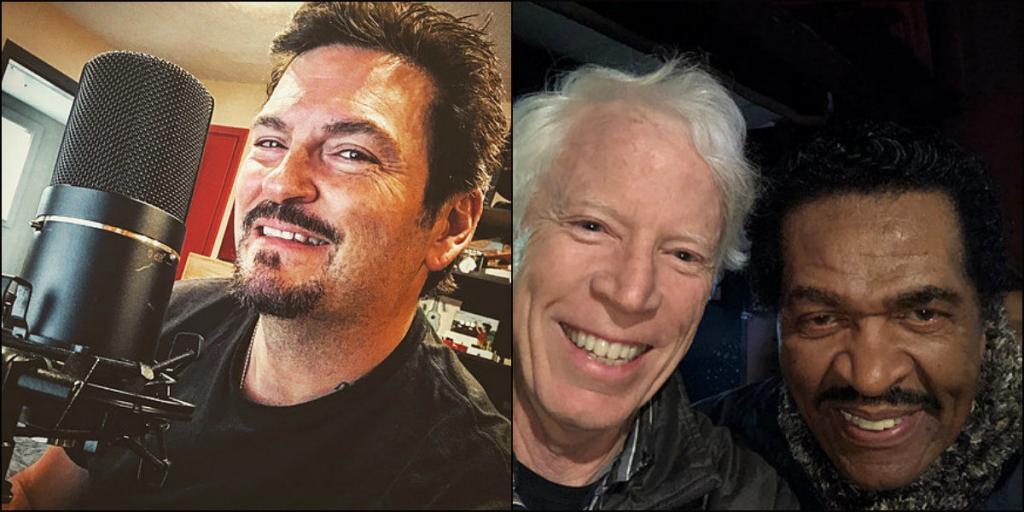
Different in all cases. Keb’ Mo’ was on a past album, somebody that I’ve always looked up to. I just think he’s an amazing storyteller, so it was great to have him on an album. Bobby Rush is just a legend.
Yeah, I like that song he did on your new album.
Yeah, I just saw him when the BB King club was being closed, and Buddy Guy was in New York for the final event there. Bobby was a guest, so he and I started chatting. That’s how that came about. Zito, I think, is just a good guy. He’s a good guy. I like his music. So, for this particular song, he had the type of voice that would be great for it. So, that was wonderful that he agreed to participate. And I’ve known Tom… He worked on my last album. I love Tom, because he makes me calm. I’m a high energy kind of guy. He’s a calming influence on me.
I love the social messages in your songs. Last year’s “You Might be Wrong,” a song that succinctly but eloquently reminds us to all to just get along. And on Prime Blues, I couldn’t help but notice the lyrics in “Tech Blues.” It’s really a light, innocuous little tune. But I also think it goes a little deeper below the surface and actually challenges the dumbing down of society. Your thoughts?
Well, I’m a huge math, science, and technology guy. But boy, I do believe…
Oh, I know.
These phones have really gotten in the way. You know, ‘I’m walking through the park and I’m feeling all alone. I’ve got to throw this phone in the trash, but wait… I’ve got to post this Instagram.’ It’s really out of hand. In my world, everybody – well, my past world – is either writing code for these things or building them, and are using them. And I see what it’s doing to kids. I certainly worry about it. And this is coming from a guy who spent years making this stuff and studying it. I’m pretty worried that it can reshape children’s brains if the interaction is too stimulating. At the same time, I’m a huge supporter of it being an educational tool and the like. And certainly, it’s used for us to accelerate science and all these other things for healthcare. So, I’m a huge supporter. But at the same time, I think you have to make sure that you are being thoughtful about how you’re using it. And make sure you’re using it and not letting it…
It use you.
Suck you in. This thing about being worried about missing out – I have to check my phone; I have to know what’s going on with Facebook or Instagram. I don’t think it’s good at all.
Well, that means something coming from you, because you were in that world. You helped develop these things. And not to get too much off topic, but I read an article one day that said kids under the age of 13 – and most of them do have their own cell phones now – it was saying that it affects dopamine levels, which makes kids depressed.
Yes. And I have no doubt – I have two kids. I’ve watched. And you know, I’m a hardcore guy about when they should be used and when they shouldn’t be used. I do believe that we will learn more about – in a generation – what this usage has done to our children. Sounds like I’m a little bit radical, but I’m really not.
No, I’m the same way. I feel like we’re guinea pigs in this stage. We’ve come so far along, but we are still the guinea pigs. And we are letting it use us.
And there’s been enough studies of the brain and how the brain works to know that we get a hit, if you will, from the constant interaction. So, I think we do have to be thoughtful about how we spend our time. I’m super hardcore about how I spend my time, when I decide to do email, or when I will do this or that. And it takes incredible discipline to do that. We will find out in the future what we have done to children.
I know. You could apply that environmentally. We’ll find out when it’s too late.
Yes, I know. I know.
Now I’m getting way off topic.
Well, what do you want your fans to know about Prime Blues? What makes it special to you?
I think it’s my best work yet. It’s got a lot of dimensions to it.
Yeah, it does.
From that perspective, I think some of the lyrics are pretty cool. I think the musicianship is stellar. And some of the people on this album, it’s just such an honor to play with them. They’re just fabulous. So, I think I’m very happy with the album. And I hope when people listen they say, ‘Wow. This is cool.’ And some of the songs are fun. ‘Jimmy’s Boogie’ is flat out fun. It’s fun to play, and it’s hard not to tap your foot to it.
Now, was this recorded in Nashville?
Yeah, at Blackbird Studios.
Is there anything I’m leaving out about the new album?
No. You probably saw that I have my own little private joke on the album cover, the mesh on the front. It’s basically a matrix of 1 to 1 million. And the prime numbers are highlighted, and I put it on the grill cover.
Well, it is aptly titled. And the whole thing is a prime number, in more ways than one. Very cool.
So, it’s my own little joke. But the joke came about after we decided that this thing is really sort of rock solid blues. I think that was the message of the name, and then of course my own little joke, which the people around me thought was funny as well.
It’s great! I just want to let you know I’m really happy for you about this latest project.
Oh, thank you. I feel really good. We actually did 17 songs in four and a half days. So, it was…
Oh, wow. Yeah, that’s a rush!
It was really cranking through them, but I had already done demos. And Tom and I had written with Richard Fleming, a lot of these. Some of them turned out quite different. Like if you go to ‘Devil Don’t Sleep,’ that song didn’t start off that way. Tom just said, ‘Hey, why don’t you just start playing?’ I said, ‘What?’
Sometimes the first take, like, you gotta go with that.
Yeah. ‘Just start playing, and we’ll come in.’
That’s how a lot of the best songs have happened.
I said, ‘Well, maybe I should have a rhythm or something.’ He said, ‘No. Just start playing.’ So, that’s how that song started. It’s just worked out so great. I’m really happy with that song.
